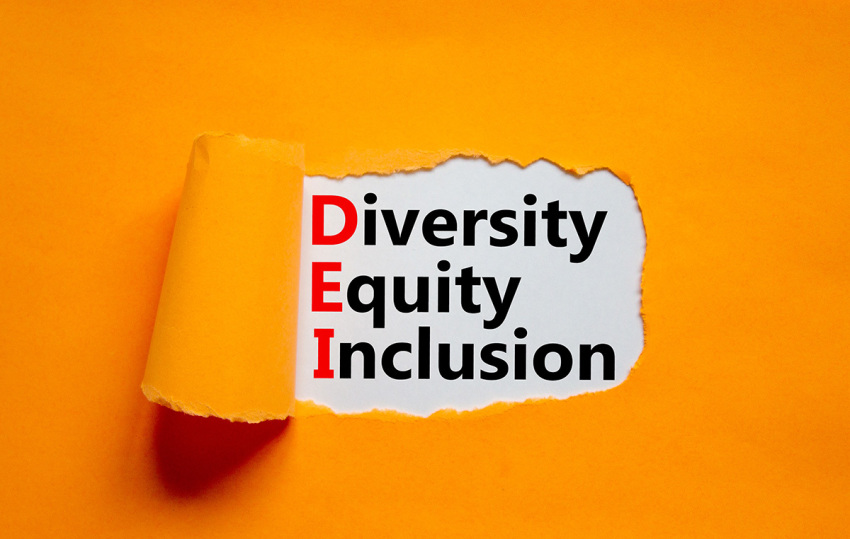Corporate support for DEI in the workplace is dropping: report

The number of companies that are giving support and planning for diversity, equity and inclusion has declined compared to last year, according to a newly released report.
Paradigm, a consulting company specializing in DEI programs, released a report titled “The State of Data-Driven DEI: 2023 Trends & 2024 Opportunities,” which drew from data collected in September that analyzed 143 organizations with employment numbers in the hundreds of thousands.
According to the report, the number of companies with budgets directed toward DEI programs has declined 4 points, from 58% last year to 54% this year. Additionally, companies that have a DEI strategy has dropped 9 points, going from 60% last year to 51% this year.
Reasons for this decline, according to the report, included “economic uncertainty that not only led to reduced spending across the board, it also firmly shifted the power balance back to Employers,” “the anti-diversity political attacks on DEI became increasingly aggressive,” and “many DEI champions” becoming “understandably fatigued.”
“Overall, we found that while organizations made some positive strides on impactful DEI efforts in 2023, many of the trends we see, combined with the effects of the current economic and political environment, show there is significant risk to DEI progress in 2024 and beyond,” stated the report.
The topic of DEI programs has been a source of controversy, with supporters arguing that the measures are important to advancing racial and gender equality, while critics argue that they discriminate against certain groups and are unnecessarily divisive.
In an op-ed piece published by CP earlier this year, John Stonestreet and Maria Baer of the Colson Center for Christian Worldview, noted:
Despite how quickly the trend has grown in recent years, it’s not working. In 2019, after spending $114 million on an initiative aimed at increasing and promoting diversity, Google’s workforce was still only 3% African American. Last summer, The Economist published findings that suggested DEI programs “do more to protect against litigation than to reduce discrimination.”
Partly behind the failure of DEI initiatives to accomplish their stated goals is how the terms are defined. Diversity is never measured in terms of belief, political party, or religion but, particularly in corporate settings, is reduced down to only categories of race, gender, and sexuality. This is why Time magazine evaluated the success of Google’s diversity program based only in terms of the ethnic breakdown of their employees.
The report also referenced the U.S. Supreme Court decision Students for Fair Admissions, Inc. v. President and Fellows of Harvard College, in which the high court ruled that schools could not use race as a factor in student acceptance.
“The Supreme Court’s affirmative action decision will make it harder for companies to hire a diverse workforce in the coming years,” the report claimed.
“Specifically, by preventing colleges and universities from considering race in admissions, the Court’s decision will likely diminish the diversity of skilled entry-level professionals in the workforce.”
The report did find a six-point increase in companies that have a senior DEI leader, a
three-point increase in organizations who track race and ethnicity representation
"within each executive’s line of business," and an eight-point rise in organizations who had gender representation goals.
In May, Florida Gov. Ron DeSantis signed Senate Bill 266, a measure prohibiting public universities and colleges from funding DEI programs.
At the official bill signing, DeSantis defended the new law as a way to “reorient our universities back to their traditional mission” and to “treat people as individuals, not to try to divvy them up based on any type of superficial characteristics.”
“We’re going to elevate merit and achievement above identification with certain groups, and in order to do that, we had to look at this new concept, relatively new concept of diversity, equity and inclusion,” he said.
“What this concept of DEI has been is the attempt to impose orthodoxy on the university, and not even necessarily in the classroom, but through the administrative apparatus of the university itself.”
DeSantis added that DEI programs have been “basically used as a veneer to impose an ideological agenda,” adding that “if you look at the way this has actually been implemented across the country, DEI is better viewed as standing for discrimination, exclusion, and indoctrination. And that has no place in our public institutions.”



























